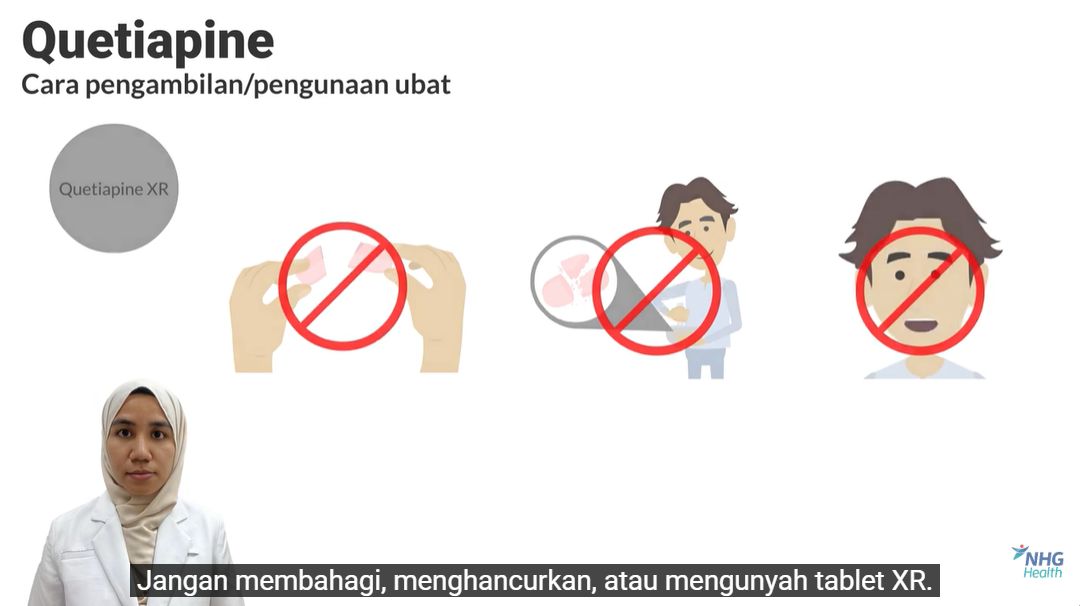Do you struggle to remember the effects, dosage, and critical information of medications?
It turns out that many older adults in Singapore already face this challenge, as about two-thirds of them have limited medical literacy, which prevents them from fully grasping medication instructions.
Speaking to GovInsider, NHG Health’s Pharmacy Principal Pharmacist (Clinical) and Co-lead of MedVid project, Sandra Xu, said the complexity of medical information can be hard to remember for patients and may cause medication non-adherence.
“When we look at counselling, there’s a lot of retention of information required from a patient, and this gives them a sort of deep cognitive burden when it comes to understanding their medications,” she adds.
Medical non-adherence harms the patient’s health and poses a considerable resource waste to pharmacies.
These were the main challenges that inspired the creation of MedVid, the first large-scale rollout of its kind in Singapore’s public healthcare.
Currently, the project includes over 300 artificial intelligence (AI)-generated medication counselling videos covering 79 topics, which ranged from commonly prescribed medications for both acute and chronic conditions to drug allergies.
The videos leverage AI on speech samples and images of real-life pharmacists from NHG Health to make the content as accurate and easily understood by patients.
Collaborating with the Lee Kong Chian School of Medicine (LKCMedicine)’s Digital Learning Team, the videos are available in Singapore’s four official languages (English, Mandarin, Tamil, and Malay), and are accessible on YouTube and HealthHub’s website.
Too much information
Current medication information, often technical and primarily in English, could be challenging for patients to understand.
The team behind MedVid identified that animations, visuals, and videos could help improve the understanding for patients, shares Xu.
Before developing the videos, NHG Health conducted focus group discussions, and reviewed the National Medication Information workgroup’s national medication leaflet that was developed to harmonise all drug information in Singapore.

When creating content for the videos, the pharmacists involved in the discussions advised on how clinical content can be curated to ensure its accuracy and easy-to-understand, also addressing frequently asked questions.
Using more natural language to break down medical information makes it more likely for patients to adhere to their dosage, as well as for pharmacists to better manage their resources, Xu adds.
About 40 per cent of patients are non-compliant with their medication, she says, attributing this to limited medical literacy.
This can severely impact resources for pharmacies and healthcare centres. In Europe alone, the annual cost of medication noncompliance was about €125 billion (S$186.6 billion).
“We have to make sure that it’s comprehensive, so pertinent things like serious side effects or whether they should take the medication before or after food, these are all taken into consideration,” Xu says.
The recent proof-of-value (PoV) study involved 149 patients, with 95 per cent of users reporting that they found it easy to access information.
Besides YouTube and the HealthHub website, the videos are accessible by scanning a QR code on the medication labels provided to patients, which will be rolled out across NHG Health institutions.
Streamlining patient care
Eighty-seven per cent of users following the PoV study stated that the MedVid videos were a viable alternative to in-person consultations.
Xu notes that the videos enable patients to help themselves, empowering them to obtain medication information whenever they need, thus freeing up time for pharmacists to manage medications for patients with more complex needs.
“Because we’re now able to offer patients with a self-help option, we no longer have to go through the whole process of giving the patient calls [individually] to explain the medications and [expect] them to retain the information.
“Pharmacy wise, we are able to focus more on patient living individuals who may need face to face counselling,” she adds.
Embracing tech for healthcare growth
Xu recognises that technology has been a steady tool that can be used to improve healthcare services for both patients and caregivers.
The challenge for MedVid was to make the best use of resources to obtain a valuable product.
“I think we are embracing more technology. In healthcare, we can’t avoid technology, especially with patients who are more digital savvy now.
“MedVid now gives them an outlet to search for reliable information instead of doing a Google search hoping that they find information that is appropriate for them.”
While these videos are being integrated into pharmacy operations, NGH Health plans to grow the collection of videos two to three times from the current 300.
The videos will prioritise medications that are more frequently used, and reach out to a wider patient population across Singapore, shares Xu.